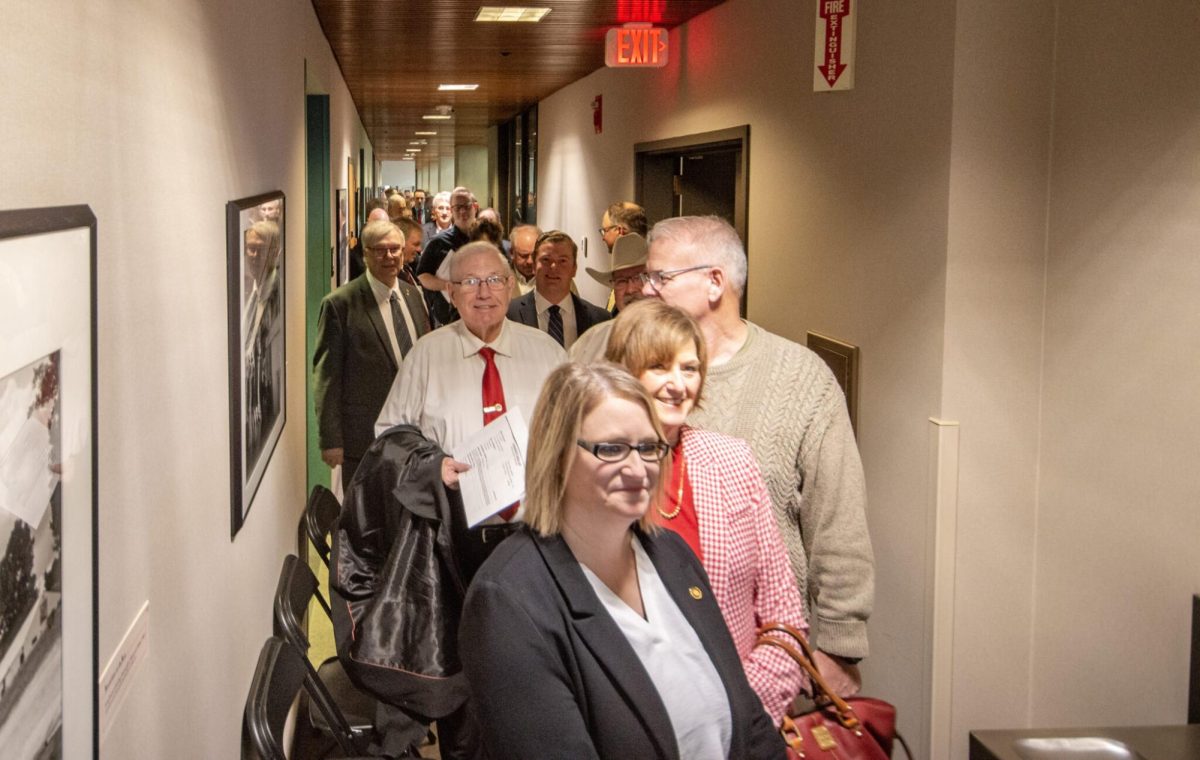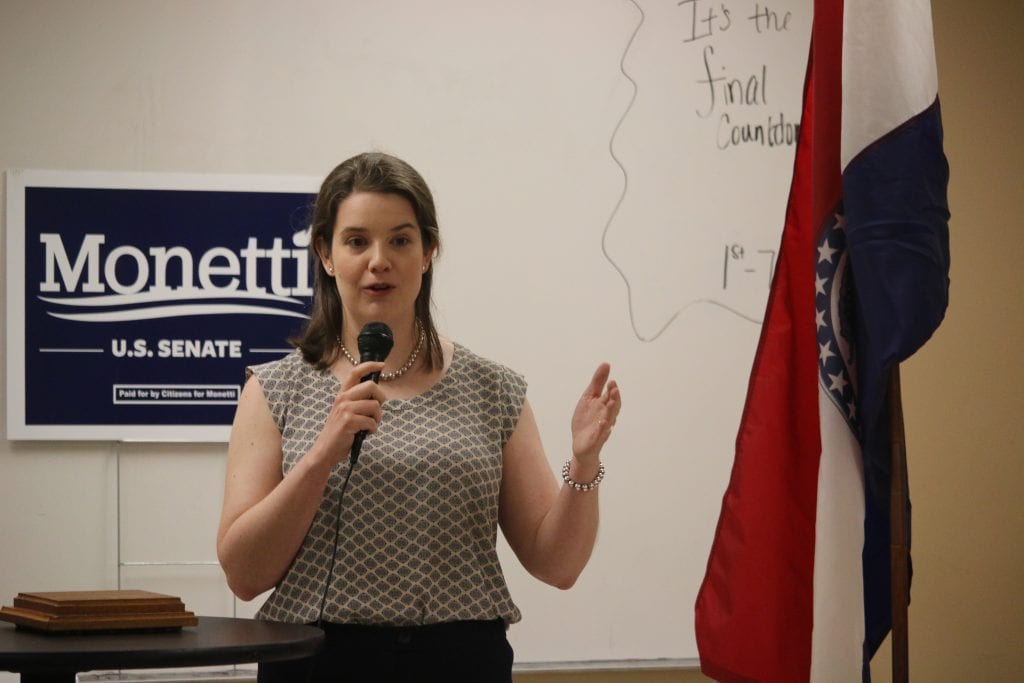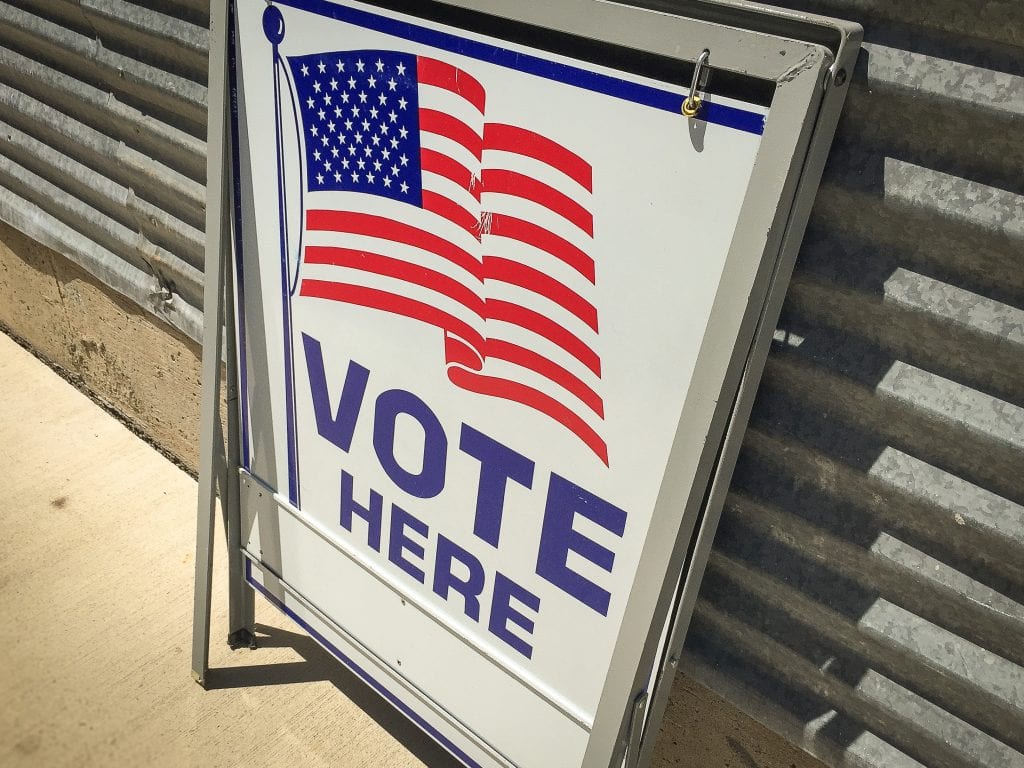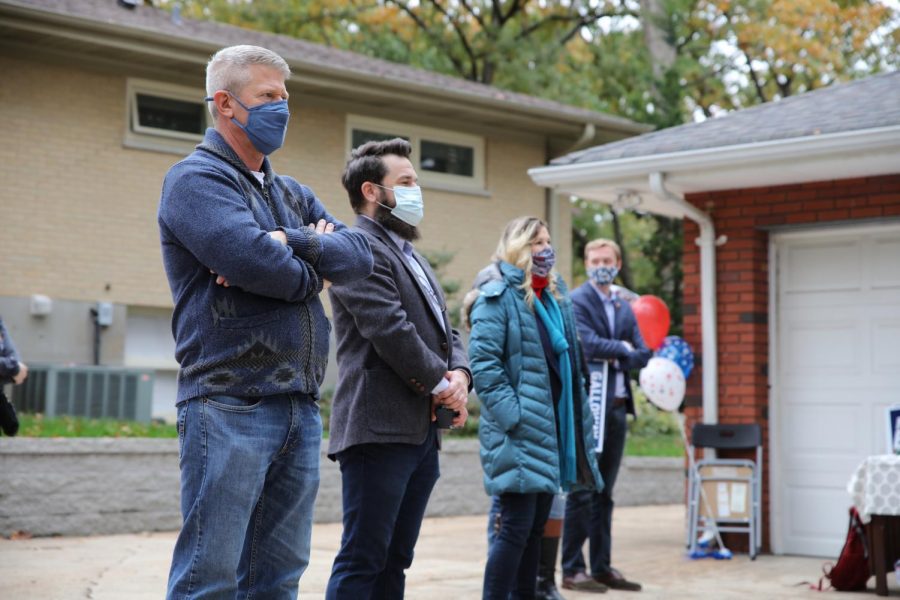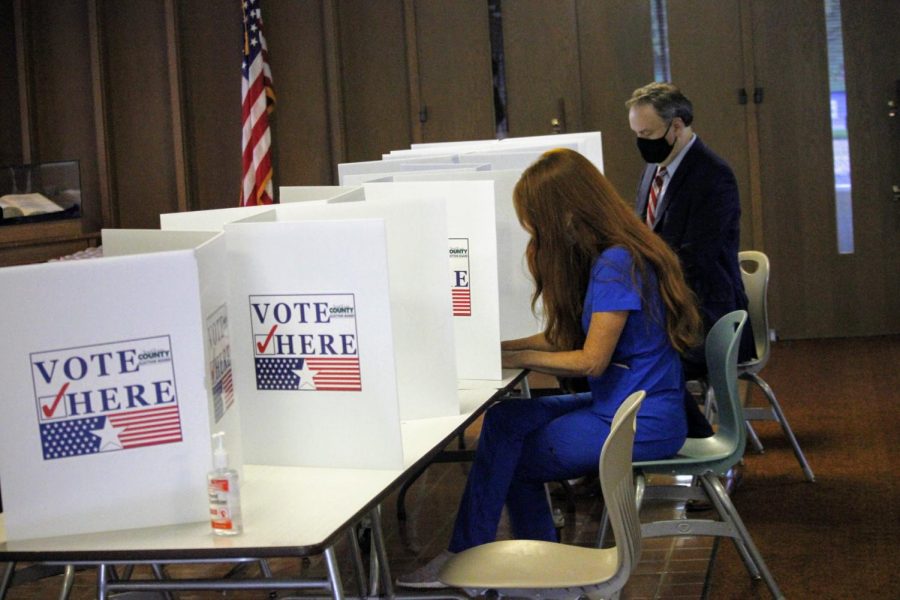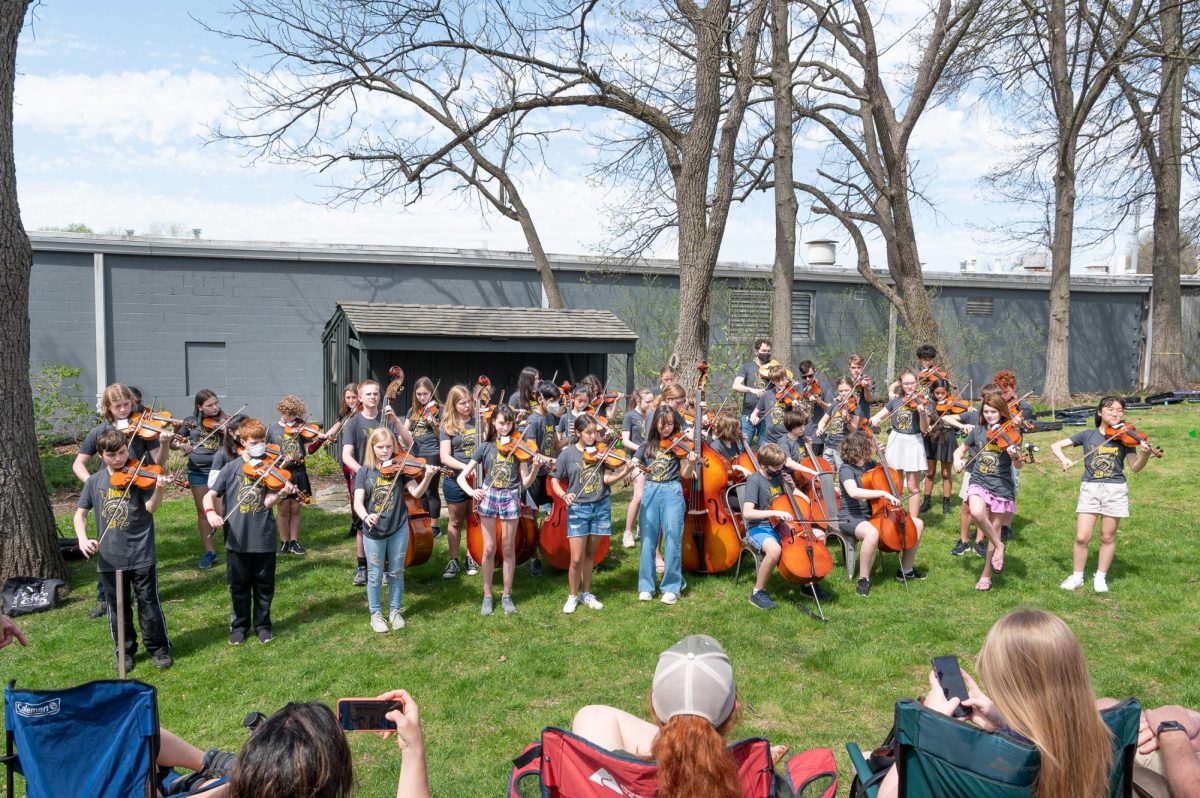Every election, the Missouri Constitution grows longer as voters approve more and more amendments governing issues ranging from the right to farm and the right to own guns.
The ballot for the Tuesday, Nov. 8, election is one of the longest in recent memory in St. Louis County, primarily due to the five constitutional amendments and one proposition up for vote, including a voter identification requirement, campaign-finance reform, dueling cigarette taxes and a ban on new sales taxes on services.
Among the array of new amendments, one of the proposed cigarette taxes, Amendment 3, has been particularly divisive. The proceeds from the tax would go toward early-childhood education, both public and private, creating a dedicated statewide fund for early childhood for the first time.
But public education advocates who would typically be in favor of any increase in funding for education have opposed it because, for the first time, public education dollars would be diverted to private schools. But opinions are divided even among public school advocates: The Missouri School Boards’ Association, or MSBA, board, led by President Larry Felton of the Mehlville Board of Education, is strongly advocating a vote in favor of Amendment 3.
Amendment 1 would continue an existing one-tenth of 1 percent statewide sales tax for parks and conservation for 10 years and has drawn little opposition compared to the other initiatives on the ballot.
At a recent meeting, the Municipal League of Metro St. Louis approved its executive committee’s recommendation to support the extension of the parks tax, with only one city official present dissenting.
“The board recommends support because Missouri state parks are some of the best in the nation, and this small tax helps maintain our parks,” Muni League President Barry Glantz. “In addition, soil conservation efforts reduce erosion and help farmers continue to have productive land for their crops.”
The second amendment voters will consider would bring back campaign-finance limits, which were repealed in 2008. Missouri is currently one of the few states with no limits on campaign donations, which has made this year’s race for governor the most expensive in state history.
Sen. Scott Sifton, D-Crestwood, has supported many ethics reforms in the Senate and wrote in a Call questionnaire that he supports the amendment. His opponent in Tuesday’s election, Webster Groves physician Randy Jotte, wrote of contribution limits in the questionnaire, “I believe transparency is critical. When limits were previously instituted, large contributions discovered alternative and often convoluted pathways to support particular candidates.”
The Muni League, comprised of mayors and city officials from cities throughout St. Louis County, unanimously agreed to support the amendment.
“The board and many citizens feel that Missouri should join the rest of the states in enacting limits and to help preserve the transparency of campaign funds,” Glantz said.
Critics of Amendment 3, a proposed new cigarette tax for early childhood education known by its proponents as the Raise Your Hands for Kids Tobacco Tax Initiative, say it is a ploy by Big Tobacco to force independent cigarette companies to pay into the state’s tobacco settlement at a similar rate to the large sellers.
The funds would go to early-childhood education, including private and parochial schools, education for pregnant women about quitting smoking, and pregnancy resource centers, according to the ballot language.
Convenience-store owners heavily oppose the tax. The Oakville Dirt Cheap’s electronic sign asks voters to defeat what the company calls a 747-percent tax increase. Many owners have lined their gas stations with signs opposing it.
“I think it’s just all political fun and games,” said Mehlville Superintendent Chris Gaines, who serves on the executive committees of state and national superintendent organizations. “If you look at what’s really driving that, it’s the Big Tobacco and their feeling that they’ve been treated unfairly in the tobacco settlement. So yeah, we’ll take an increase in the tobacco tax, we’re still going to be lower than everyone around us, but now all the little companies have got to pay into the tobacco settlement. So hey, that’s great for us.”
In response, the Missouri Petroleum Marketers and Convenience Store Association is supporting the other cigarette tax on the ballot, Proposition A, which would use the new cigarette tax to fund roads and transportation.
Amendment 3 would raise the cigarette tax by 60 cents and create a 13-member appointed commission, the Early Childhood Commission, that would direct the cigarette tax toward private and public schools, according to the ballot language.
Education advocates are similarly split, with Mehlville board member and MSBA President Felton supporting the amendment, along with the rest of the MSBA.
The pro-Amendment 3 group, Raise Your Hands for Kids, counts the MSBA, children’s hospitals, SSM Health Care, Parents as Teachers and Nurses for Newborns among the dozens of child-centered organizations that support it.
Although the organization’s largest donor is the R.J. Reynolds Co., it fights back against the idea that the amendment was written by Big Tobacco.
The organization wrote the amendment after two years of more than 300 stakeholder meetings around the state and gauging what level of cigarette tax voters might approve, the group says.
Among the public supporters of Raise Your Hand for Kids are St. Louis Mayor Francis Slay, Kansas City Mayor Sly James, 1st District County Councilwoman Hazel Erby, D-University City, and Rep. Courtney Curtis, D-Ferguson.
The Muni League voted to support the amendment 21-13, with one vote per city, because early childhood education is so important to help children thrive.
City officials also believe it is important for the state to have dedicated funding for early childhood education, since none currently exists, Muni League Executive Director Pat Kelly said.
By the fourth year of the tax, it is estimated that it will bring in $300 million a year.
“These programs can provide some of the best economic development tools by preparing children to learn when they reach school age,” Glantz said of the Muni League’s support. “Too many of our youngsters are not able to get the needed preschool support at home, so these folks can provide a valuable head start for young learners.”
But the Missouri National Education Association, or MNEA, came out against the amendment in May.
In a statement, MNEA President Charles E. Smith said, “The stakes for children are simply too high to overlook the constitutional amendment’s shortcoming. The amendment permits public tax dollars to fund programs at elite private or religious schools. It lacks strong oversight and it places all decisions in the hands of an unelected commission, a majority of whom do not have a background in education.”
But MSBA President Felton strongly disagrees, posting on Facebook that he has spent the last year fighting for the amendment as a last-ditch effort to fund early childhood education on par with other states.
“I can tell you that the majority of people who oppose this really don’t have a personal reason they are being motivated by other people’s opinions,” Felton wrote.
While the MNEA and other education advocates contend that the amendment will divert public money away from public schools to private ones, Felton disagrees.
The money isn’t currently being spent on public schools, and private schools are in the mix because they provide services for infants, while public schools do not.
The amendment does not allow funds to be used for religious instruction or create a voucher system, he said.
“And it does not take money away from public schools,” he added. “Amendment 3 will send millions of new revenue to public, private, not-for-profit and faith-based providers for early care and education priorities in Missouri.”
The MSBA president noted that the amendment will not be like the lottery, which was purported to fund education. Unlike the lottery, in which a state statute mandated that funds be directed to the state’s general fund, the amendment will have a “lockbox” just for early childhood education, Felton said, “so the Legislature can’t touch it.”
But aside from the details of what is included in Amendment 3, Gaines said he’s also skeptical of the recent trend of voters updating the Constitution annually: “The whole notion to me of voters manipulating the Constitution is a little off anyway.”
If voters approve Amendment 3, it would place two sections of the Missouri Constitution against each other, since an existing section mandates that no public dollars will go to parochial schools, Gaines said. That’s a major concern for superintendents, who like predictability when it comes to state funding.
Still, the superintendents’ political-action committee, or PAC, did not take an official stance against the amendment, although there was some discussion of opposing it, Gaines said.
But many are lining up to oppose the amendment because of the language it contains that is unrelated to cigarettes or education, including a mention of abortion and stem-cell research.
That ballot language makes support for the amendment difficult, Sifton said, even though he is generally supportive of tobacco taxes.
“If Amendment 3 were only a tobacco tax provision in favor of early childhood education, I think it would get a lot more support,” he told the Call. “But it gets into a lot of things that have little if anything to do with it. There’s some really challenging language there, so I have reservations.”
The amendment has upset some pro-life Missourians who object to the fact that if the amendment passed, the words “abortion services” would appear in the state Constitution for the first time.
The language was inserted into the amendment because if it is passed, health-care centers will be able to apply for early childhood grants that could pay for health-care services for children from birth to 5 years old, Felton noted. Without the “unless” language, health-care facilities would not be able to apply for those grants, he said.
The Missouri Right to Life is neutral on the amendment because it says the language used specifically prohibits the proposed school funds from being used for abortion, embryonic stem-cell research or cloning.
The pro-life organization’s PAC is staying neutral because “after careful review, it cannot envision any scenario where the funds could be used for anti-life purposes,” the group said in a statement.
The National Abortion Rights Action League, or NARAL, opposes Amendment 3 because it “advances a stealth agenda” and potentially steers proceeds from the tobacco tax to anti-choice groups.
“Helping kids doesn’t require punishing women,” NARAL said in a statement announcing its opposition.
The same language banning the use of the money for stem-cell research has spurred Washington University to mount an opposition campaign to the amendment. In an email sent to the student body this week, the university urged a vote against the tax.
“Though simple on its face, Amendment 3 raises very serious concerns, particularly for world-leading research institutions like ours,” the university said in the message. “Washington University strongly supports physicians and scientists as they pursue research into therapies and cures for life-threatening diseases. Therefore, the university opposes Amendment 3 because it contains language that conflicts with state constitutional protections for stem cell research and threatens progress to fight disease.”
For the same reasons, other research organizations also urge a “no” vote, including the American Cancer Society, the Campaign for Tobacco-Free Kids, the American Heart Association, the American Lung Association, the Missouri Biotechnology Association and BioSTL.
But Felton pointed out that “not funding research is not the same as banning research.” While the funds could not go to embryonic stem-cell research or tobacco research, that is not the point of the amendment and could be funded through other means.
And while some anti-smoking groups want the tax to be higher, Felton said that 60 cents over four years is the most that voters said they were willing to consider.
Some of the research groups want any prospective tobacco tax for their own research programs, Felton added.
“I respect those positions, but I believe early childhood education is a higher priority,” he said.
Amendment 4, also known as the “Taxpayer Protection Amendment,” would prohibit any new statewide sales taxes on services and allow the Legislature to ban new city taxes on services.
Such taxes on services have been proposed in the last seven sessions of the Legislature, proponents of the measure say.
Not surprisingly, owners of service businesses are in full support of the amendment, as are those who don’t like taxes. The National Federation of Independent Businesses, or NFIB, is supporting the amendment, as is the Missouri Association of Realtors, which created the pro-Amendment 4 organization, Missourians for Fair Taxation.
Some states have allowed taxes on real-estate sales, but that would be banned under the amendment.
Opposed to the tax are city officials who say it could handcuff their future budgets as brick-and-mortar retail gives way to a different type of economy.
The St. Louis County Muni League voted to oppose the amendment 27-9.
“The board is concerned that placing a sales/use tax expansion prohibition in the Missouri Constitution would not allow vitally important local revenues to adjust to new technologies and a shifting economy, also with the existing constitutional requirements, any proposal to expand local sales taxes to services in Missouri would require a vote of the people,” Glantz summarized.
But Chesterfield Mayor Bob Nation said he supports the amendment because he’s generally against new taxes.
“Most people, at least from my area, are opposed to a new tax on services, and I believe that’s what this represents,” Nation said.
Even if city taxes are hamstrung by the new amendment, “Either way, I’m opposed to it, new sales taxes,” Nation added.
But the effect on cities could be very damaging, emphasized Kelly, who is the former mayor of Brentwood.
“It says state, but it would also affect local municipalities in the future for the ability to come up with new sources of tax revenue,” he said.
One city official who got up to support the amendment said, “What it appears to me is it goes back to that old expression, ‘If it moves, tax it.’ And I never really liked that.”
However, the St. Charles County Municipal League is part of the coalition supporting the amendment.
Long term, the Taxpayer Protection Amendment could affect school districts and education funding, since school districts statewide receive some money through Proposition C sales taxes, Gaines said. But superintendents are not taking any official stance on the measure.
Amendment 5 would have been a measure to approve medical marijuana in Missouri, but the measure was yanked by election officials for not gaining enough valid signatures.
The last amendment on the ballot would require voters to show identification when they go to the polls to vote.
Voter ID measures are popular with voters, but the ACLU of Missouri has come out strongly against the measure, saying that it’s fixing a problem that doesn’t exist.
A voter ID measure would only protect against voter impersonation at the polls, which an investigation by The Washington Post found happened 31 times out of a billion votes cast, with no documented cases in Missouri.
At a time of strapped state budgets, the amendment could cost millions $17 million over three years — to pay for identification cards for people who don’t yet have them, the ACLU pointed out.
Similar bills have been thrown out in other states, most recently North Carolina, for making it harder for minorities, the elderly, and people with disabilities to exercise their constitutional right to vote, the organization pointed out.
The 23-cent cigarette tax on the ballot, Proposition A, is an alternative to Amendment 3 proposed by convenience-store owners.
“The Petroleum Marketers group, all the convenience stores, they’re the ones that are always fighting that, but this time they put their own tax on the ballot,” Gaines said.
Instead of funding early childhood education, however, the funds would go to roads, bridges and transportation.
“Definitely a statewide need,” Gaines noted.
“But their language has got this poison pill in there that if anybody files legislation to raise the cigarette tax, then that tax that was voter-approved is negated,” he added. “So in theory, voters could approve that proposition and a legislator could file a bill in December, and the tax would be gone, never go into effect.”
But unlike Amendment 3, Proposition A keeps the current structure of the tobacco settlement so that Little Tobacco doesn’t pay into it, Gaines said.
“Unfortunately, Proposition A is the same as Amendment 3 that way — there’s some poison pills in there,” Sifton said.


















